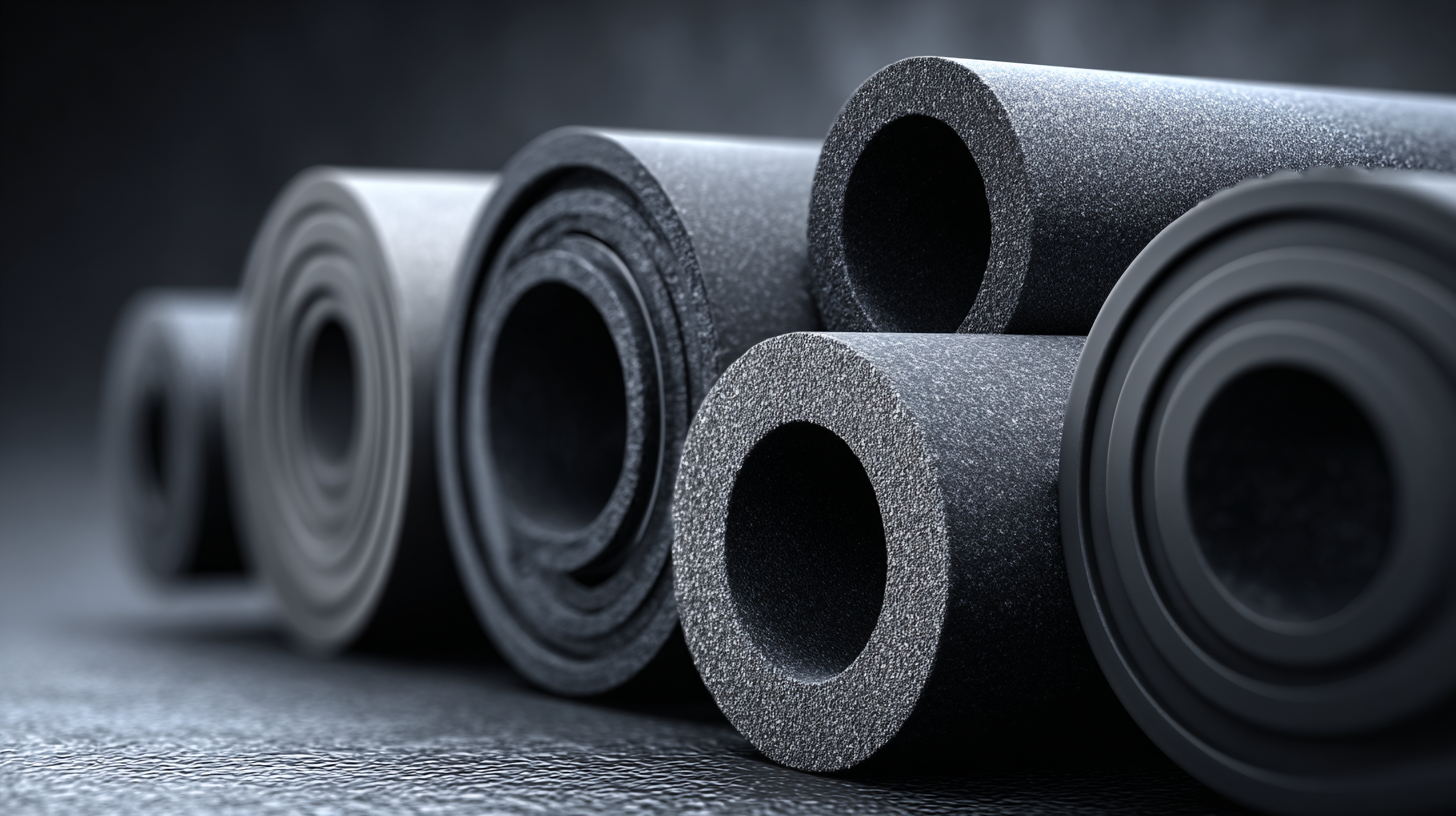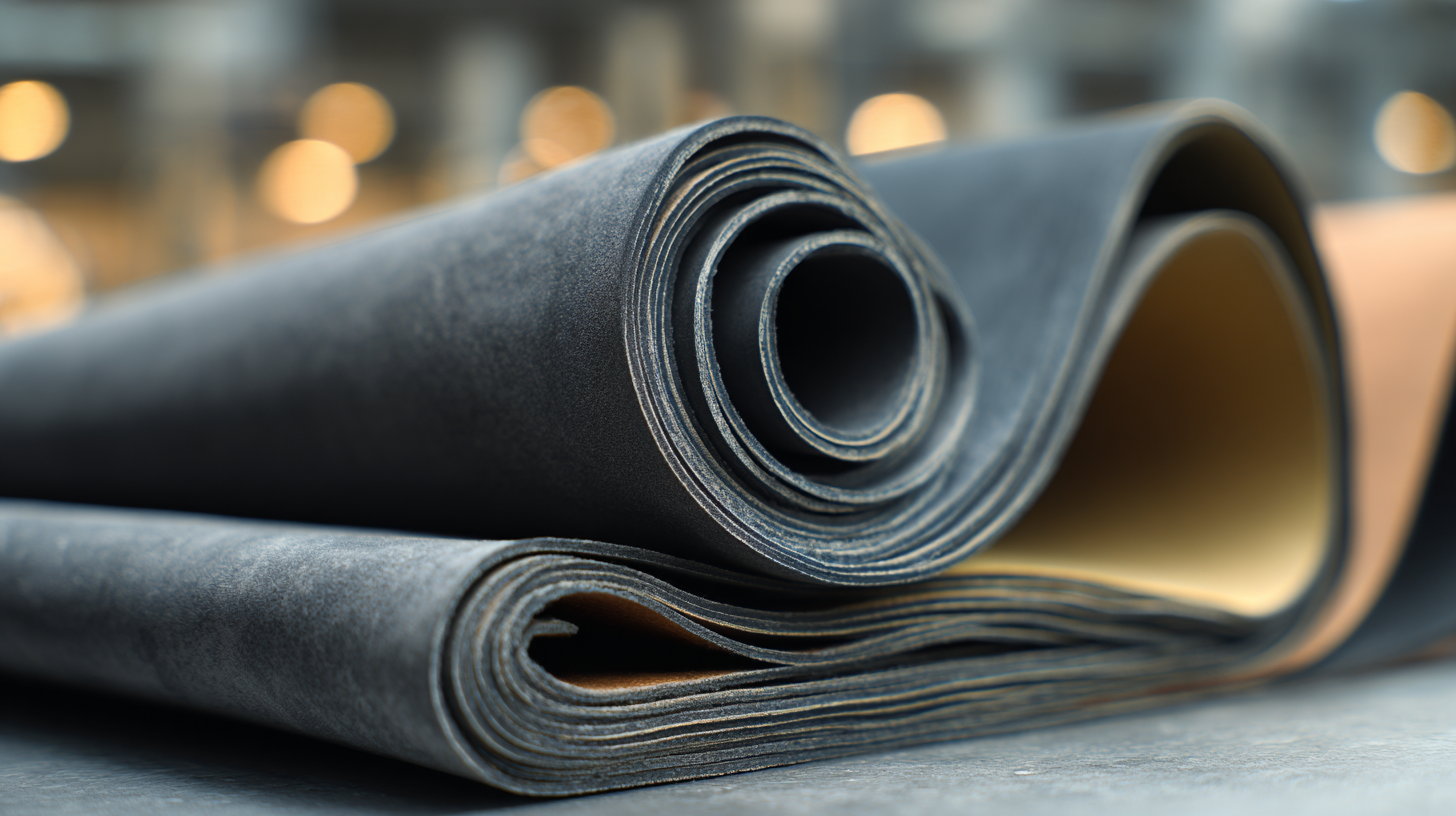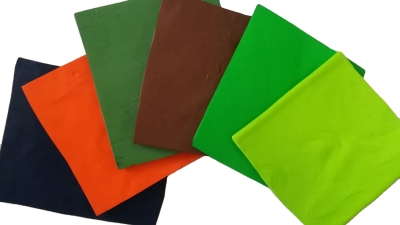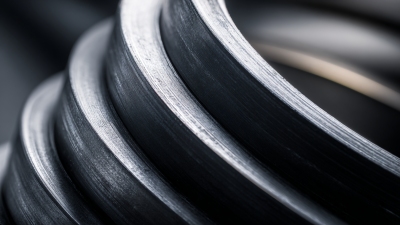How to Choose the Right Viton Material for Your Industrial Needs
Table of Contents
- Understanding Viton: Properties and Advantages for Industrial Applications
- Key Considerations When Selecting Viton Grades for Different Environments
- Chemical Compatibility: Assessing Viton's Resistance to Specific Chemicals
- Temperature Ratings: How to Choose Viton for High and Low-Temperature Applications
- Cost Analysis: Evaluating the Long-Term Savings of Using Viton Materials
- Real-World Applications: Industries That Benefit Most from Viton Use
- Exploring the Versatility of FKM Fluoroelastomer Compounds for Advanced Molding Applications
- FAQS
- Conclusion
- Related Posts
You know, in today's industrial world, choosing the right Viton material isn't just a minor detail — it's actually pretty critical for making sure stuff works smoothly and lasts long. As industries lean more and more on high-performance elastomers, guess what? The global market for fluoroelastomers is expected to hit around $8 billion by 2025, growing at a compound annual growth rate of over 6%. That’s mainly because there's a bigger demand for materials that can handle heat and chemicals — especially in sectors like automotive, aerospace, and oil & gas.

By the way, Sichuan Fudi New Energy Co., Ltd., has been around since 1998. They’ve got over 20 years of experience in making and selling fluoroelastomers and fluorinated rubber materials, including top-notch Viton options. Knowing the different properties and specs of Viton can really make a difference in tough environments, so it’s super important for manufacturers to carefully pick the right one based on their specific needs and the variety of choices out there.
Understanding Viton: Properties and Advantages for Industrial Applications
When you're choosing the right Viton material for industrial use, it’s pretty important to get a handle on its properties and why it’s such a popular choice. Basically, Viton is a type of fluoropolymer elastomer that's really known for standing up to crazy-high temperatures, chemicals, and tough environmental conditions. It can handle temps from about -20°C all the way up to 204°C—so it’s pretty versatile, especially in sectors like aerospace, automotive, and chemical processing where those kinds of extremes are the norm. I recently read that the market for industrial elastomers is expected to grow quite a bit, and Fluoroelastomers like Viton are expected to play a big role because of how well they perform.
But here’s the thing—Viton isn’t just tough; it’s also super flexible and durable, which makes it perfect for sealing applications that need to be airtight. And with industries looking for materials that can handle harsh chemicals, resist oils and fuels, Viton is really becoming a go-to option. Companies also love that, in the long run, using Viton means less maintenance and less downtime, saving them money over time. All these qualities combined make Viton a pretty invaluable material for industries that want to improve their efficiency and make sure their products stay reliable.
Key Considerations When Selecting Viton Grades for Different Environments
When you're trying to pick the right Viton material for your industrial project, it's super important to think about the specific conditions it'll face. There are different grades of Viton, each built to handle different temperatures, chemicals, and mechanical stresses. For example, if your application involves harsh chemicals or solvents, you'll want to go for a Viton grade that's really resistant to chemical attack — that way, it lasts longer and keeps performing well.
Another thing to keep in mind is the temperature range your setup will experience. Some Viton types can handle both really cold and super hot conditions, but not all. It's a good idea to pinpoint the highest and lowest temperatures your application will see, so you pick a grade that won't start breaking down or losing its elasticity when things get extreme.
Oh, and don’t forget about factors like how well the material resists compression set or how flexible it needs to stay. Especially if your component’s going to move around a lot or endure compression, these details matter big time. By thinking through all these points, you’ll be better equipped to choose the right Viton and get the best performance out of your industrial parts.

Chemical Compatibility: Assessing Viton's Resistance to Specific Chemicals
When you're choosing Viton materials for industrial use, one of the biggest things to consider is how well it gets along with different chemicals. You see, Viton is a type of fluorocarbon elastomer — a fancy way of saying it's super resistant to many nasty chemicals like oils, fuels, and even some pretty harsh solvents. That’s why it’s often the go-to choice in fields like aerospace and automotive industries. Oh, and according to the American Society for Testing and Materials, Viton can handle temperatures from about -20°F all the way up to 400°F, which definitely helps it perform reliably in really hot or cold environments that also involve chemical exposure.
If you want to really understand how resistant Viton is to different chemicals, it's a good idea to look at compatibility charts. These charts show how it reacts with various substances. And, interestingly, research from the Chemical Resistance Institute shows that Viton keeps more than 95% of its tensile strength after being exposed to hydrocarbons and many types of acids. That’s pretty impressive, especially when you think about applications like fuel or chemical processing plants, where there's often exposure to corrosive stuff. So, taking a bit of time to check out these compatibility details can help engineers and maintenance teams make smarter choices, making sure their parts last longer and work better in the long run.
Temperature Ratings: How to Choose Viton for High and Low-Temperature Applications
When you're choosing Viton for industrial uses, it’s pretty important to really get what the temperature ratings mean. Viton, which is a type of fluoropolymer, is known for its amazing ability to resist really tough temperatures – usually somewhere between -20°F to 400°F (-29°C to 204°C). If you're dealing with high heat environments — think automotive or aerospace applications — picking the right Viton Grade A is a smart move because it offers better thermal stability and lasts longer. Folks in the industry often find that Viton works really well even under continuous high heat, staying elastic and sealing tightly without losing performance.
On the flip side, if you’re working in cold settings—like in refrigeration or cryogenics—you wanna go for Viton mixes that include special additives to boost flexibility. For instance, Viton GLT keeps its bendiness better at really low temps compared to regular grades. Just a heads-up: using the right formulation can really cut down the chances of cracking or failing in tricky conditions, so your equipment keeps running smoothly.
Some quick tips:
- Make sure you check the maximum and minimum temperatures your system will hit before picking your Viton.
- Don’t be shy about reaching out to manufacturers to get detailed data on different grades and their thermal performance.
- Keep in mind how it’s installed and whether it’ll experience thermal cycling — that can influence what kind of Viton you should go for.
Cost Analysis: Evaluating the Long-Term Savings of Using Viton Materials
When you're looking into the long-term savings of using Viton materials in industrial settings, it really pays to think about both the upfront cost and the overall expense you’ll incur over time. Sure, Viton might cost more initially compared to traditional rubber options, but its incredible durability and resistance to tough chemicals mean you end up spending less on maintenance, replacements, and dealing with downtime later on. Especially in industries that face extreme conditions—like chemical processing, oil and gas, or aerospace—you'll find that Viton’s longevity can lead to pretty significant savings in the grand scheme of things.
At Sichuan Fudi New Energy Co., Ltd., with over 20 years of experience working with fluoroelastomers, we can personally vouch for how choosing top-quality Viton materials tailored to your specific needs can really make a difference financially. Our product lineup includes FKM compounds and fluorosilicone rubber, both known for their durability and performance. By doing a good cost analysis—considering how well the materials perform, how long they last, and what your particular industrial environment demands—you can make smarter decisions that boost your operational efficiency while keeping your budget in check. Investing in Viton isn’t just about the initial expense; it’s about making sure your equipment stays reliable and saving money in the long run, all while doing what’s best for your business.
How to Choose the Right Viton Material for Your Industrial Needs - Cost Analysis: Evaluating the Long-Term Savings of Using Viton Materials
| Material Type | Temperature Resistance (°C) | Chemical Compatibility | Estimated Cost per kg ($) | Lifespan (Years) | Long-Term Savings ($) |
|---|---|---|---|---|---|
| Viton A | -20 to 200 | Excellent | 35 | 10 | 500 |
| Viton B | -10 to 230 | Good | 30 | 8 | 400 |
| Viton GF | -20 to 220 | Excellent | 40 | 12 | 600 |
| Viton X | -40 to 260 | Excellent | 50 | 15 | 800 |
Real-World Applications: Industries That Benefit Most from Viton Use
When we're talking about industrial uses, Viton materials have really made a name for themselves across a bunch of different sectors. You see, they're incredibly resistant to heat, chemicals, and wear and tear — which is a huge plus. Take the automotive industry, for example. They rely on Viton in a whole range of parts like gaskets, seals, and O-rings. These components need to withstand some pretty tough conditions — think exposure to oils, fuels, and high temperatures — and Viton does the job, offering the durability and long-lasting performance that helps keep vehicles running safely and smoothly.
On top of that, Viton is also a real hero in the pharma and food processing world. Here, material integrity is everything because it directly affects product safety and quality. Luckily, Viton's resistance to a wide variety of chemicals and temperature swings makes it perfect for sealing in equipment that handles sensitive stuff. This helps prevent contamination and keeps operations efficient, which is a win-win for both manufacturers and the people enjoying the products every day.
Industrial Applications of Viton Material
Exploring the Versatility of FKM Fluoroelastomer Compounds for Advanced Molding Applications
Fluoroelastomers, particularly FKM compounds, have gained significant traction in various advanced molding applications due to their remarkable versatility and performance characteristics. Comprising a mixture of FKM raw gum, crosslinkers, and fillers, these compounds are designed to be user-friendly and ready for immediate use. The ability to achieve hardness levels ranging from 50 to 90 Shore A allows for customization based on specific application needs, creating a tailored approach for industries demanding high-performance materials.
In industries such as automotive and aerospace, where exposure to extreme temperatures and aggressive chemicals is common, the advantages of FKM compounds cannot be overstated. According to a recent report by MarketsandMarkets, the global demand for fluoroelastomers is projected to reach USD 3.2 billion by 2026, driven by their resistance to heat, chemicals, and aging. Furthermore, the option to tailor colors enhances the aesthetic appeal of molded products while maintaining functionality. The shelf life of FKM compounds, ranging from 6 to 12 months, provides manufacturers with flexibility in inventory management and production scheduling.
The adaptability of FKM compounds positions them as a preferred choice for innovative molding solutions. With advancements in material technology, the development of customized formulations continues to expand possibilities, making FKM compounds indispensable in sectors that prioritize both durability and versatility in their applications.
FAQS
: Viton is a fluoropolymer elastomer known for its excellent resistance to high temperatures, chemicals, and environmental factors. It can maintain its integrity under extreme conditions, making it suitable for industrial applications.
Viton exhibits a temperature range from -20°C to 204°C (-29°F to 400°F), suitable for both high and low-temperature applications.
For high-temperature applications, Viton Grade A is recommended due to its superior thermal stability and durability. For low-temperature scenarios, compounds like Viton GLT are preferred for their enhanced flexibility.
Industries that make use of Viton include aerospace, automotive, and chemical processing, where its performance characteristics are highly valued.
Viton reduces maintenance and downtime, leading to long-term cost benefits for industries that require reliable and durable components.
Viton is compatible with a wide range of substances, including oils and fuels, making it an ideal choice for applications in harsh chemical environments.
It’s important to consider the maximum and minimum operating temperatures, consult manufacturers for performance data, and think about installation conditions and potential thermal cycling.
Different formulations, such as those blended with specific additives, can enhance characteristics like flexibility at low temperatures, reducing the risk of cracking or failure.
Viton offers superior flexibility and durability, making it an ideal choice for creating airtight seals that perform reliably under demanding conditions.
There is a rising global demand for materials like Viton that can withstand harsh chemical environments, indicating its critical share in the industrial elastomers market.
Conclusion
Picking the right Viton material for industrial use isn’t just about the basics — it’s a bit of a balancing act. You’ve gotta think about its properties, what benefits it offers, and how well it plays along with the specific environments you’re working in. Viton’s pretty popular for its awesome chemical resistance and ability to handle high temperatures, so it’s a go-to choice in lots of different industries. When you're choosing between different Viton grades, it’s super important to take into account things like what kind of chemicals it’ll be exposed to and how hot things are gettin’. That way, you make sure it performs just right.
And hey, don’t forget to do a quick space check too—like, crunch the numbers on costs. Sometimes, splurging on Viton at the start actually ends up saving you a ton over the long run because of its durability. With over 20 years under their belt, Sichuan Fudi New Energy Co., Ltd. really knows their stuff. They focus on making top-notch fluoroelastomer products, including Viton, that are built to last and work well even in tough conditions. By keeping all these factors in mind, businesses can make smarter decisions that really match their needs and keep things running smoothly.
Blog Tags:

Eleanor
-

Phone
-

E-mail
-

Whatsapp
-

Top





